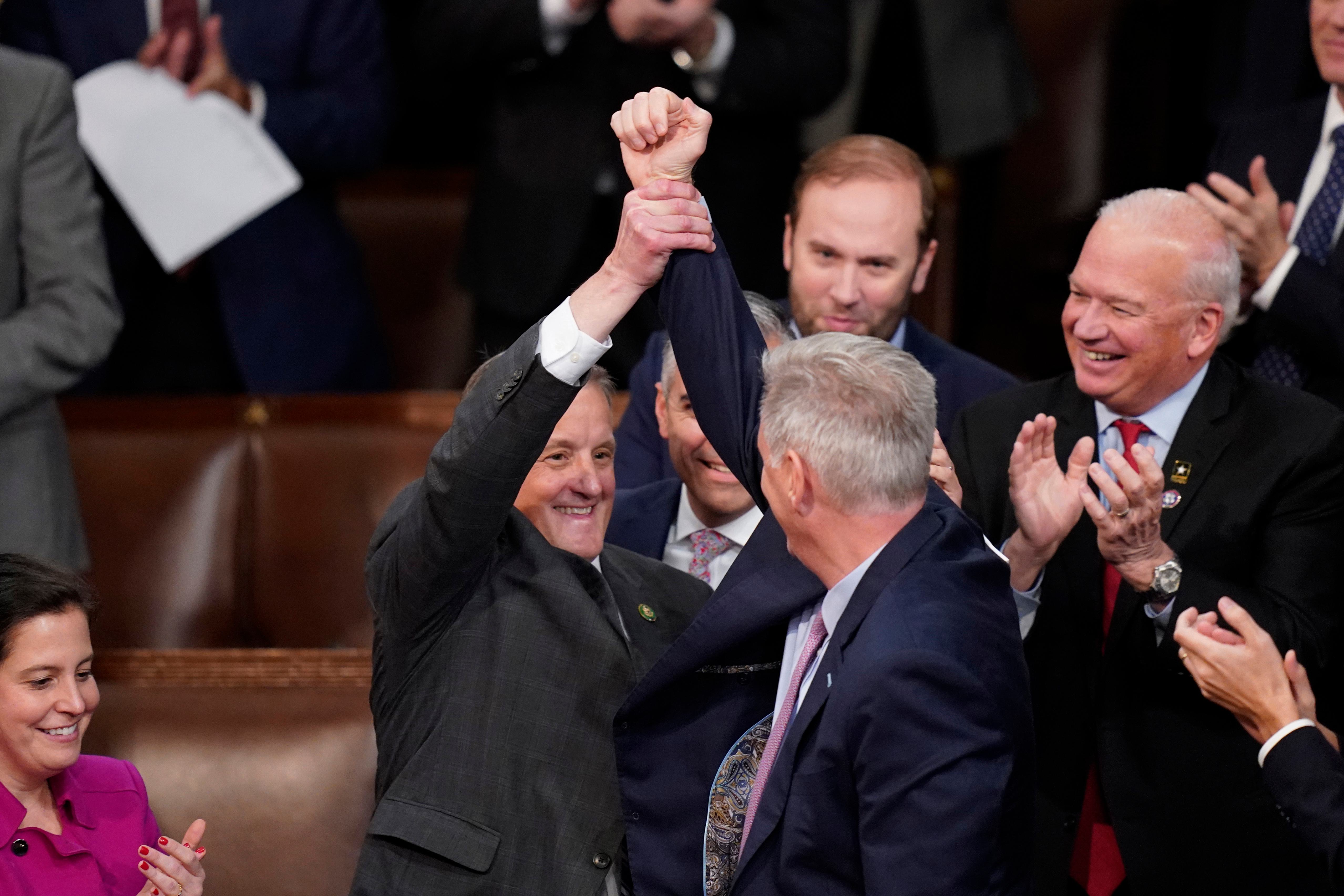U.S. Rep. Kevin McCarthy (R-Calif.) was elected Speaker of the U.S. House of Representatives on Friday night during the 15th ballot cast in the contentious leadership election by a 216-211 vote, with five members voting "present."
A handful of conservative Republicans, namely those involved with the Freedom Caucus, have denied support to McCarthy due to his inability to address rule changes put in place by Rep. Nancy Pelosi (D-Calif.) during her tenure in the leadership role.
The more conservative Republicans initially refused to support McCarthy because they felt he was unwilling to change the rules enough. Instead, they cast votes for several alternatives, such as Representatives Byron Donalds (R-Fla.), Jim Jordan (R-Ohio) and even former President Donald Trump.
Nevertheless, some of McCarthy's opposition eventually agreed to concessions with the establishment Republicans, which, according to Daily Mail (UK), include lowering the threshold of members necessary to bring up a vote to vacate the chair back to one, making a stronger commitment to increasing the statutory debt limit, getting a floor vote on term limits and border security and keeping establishment money out of open primaries among others.
Meanwhile, Democrats, who now have only a slight minority in the House, unanimously backed U.S. Rep. Hakeem Jefferies (D-N.Y.).
This week's leadership election was the longest Speaker contest in 164 years. The last time Congress cast this many ballots to select a speaker was in 1859, when the country was on the brink of a deadly war between the Union and the Confederacy. Rep. William Pennington (R-N.J.) won the position only after 44 ballots were cast.
Representatives Mike Rogers (R-Saks), Robert Aderholt (R-Haleyville), Gary Palmer (R-Hoover) and Dale Strong (R-Huntsville) all gave their support to McCarthy from the beginning. In particular, Rogers butted heads with the conservative Republicans throughout the week, threatening to have them removed from committee assignments if they didn't back down.
After the 14th round of voting on Friday night, Rogers had to be restrained after approaching Rep. Matt Gaetz (R-Fla.), one of the leaders in the anti-establishment opposition. Gaetz had just voted "present," but McCarthy still fell one vote short of the Speakership.
Unlike many of his other delegation members, Rep. Barry Moore (R-Enterprise) told 1819 News earlier this week that he was working with the Freedom Caucus to negotiate for the rule changes. Still, Moore voted for McCarthy on every ballot.
To connect with the author of this story, or to comment, email will.blakely@1819news.com or find him on Twitter and Facebook.
Don't miss out! Subscribe to our newsletter and get our top stories every weekday morning.










